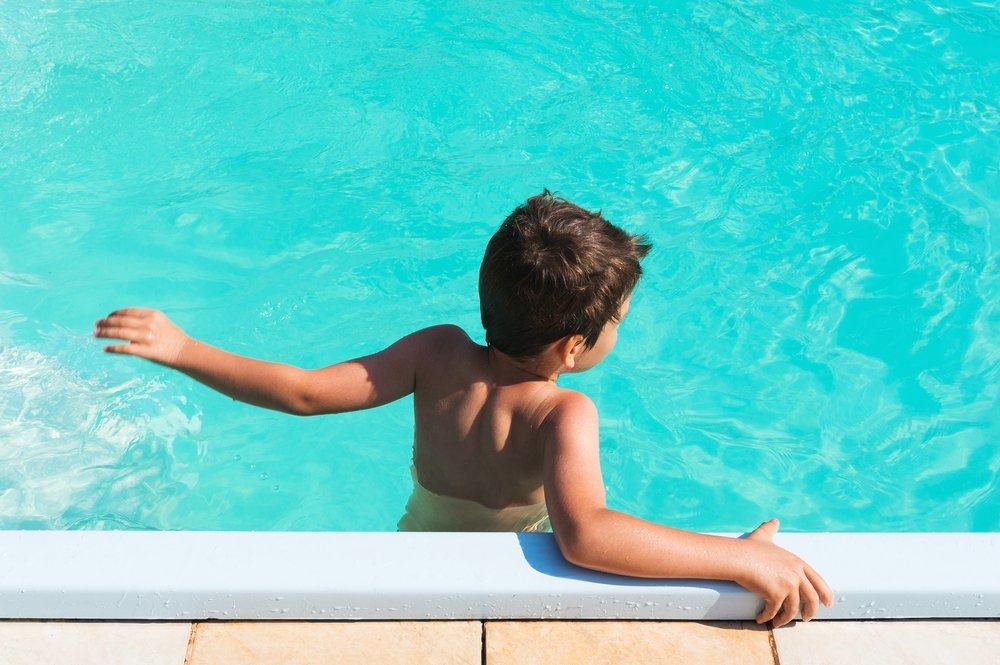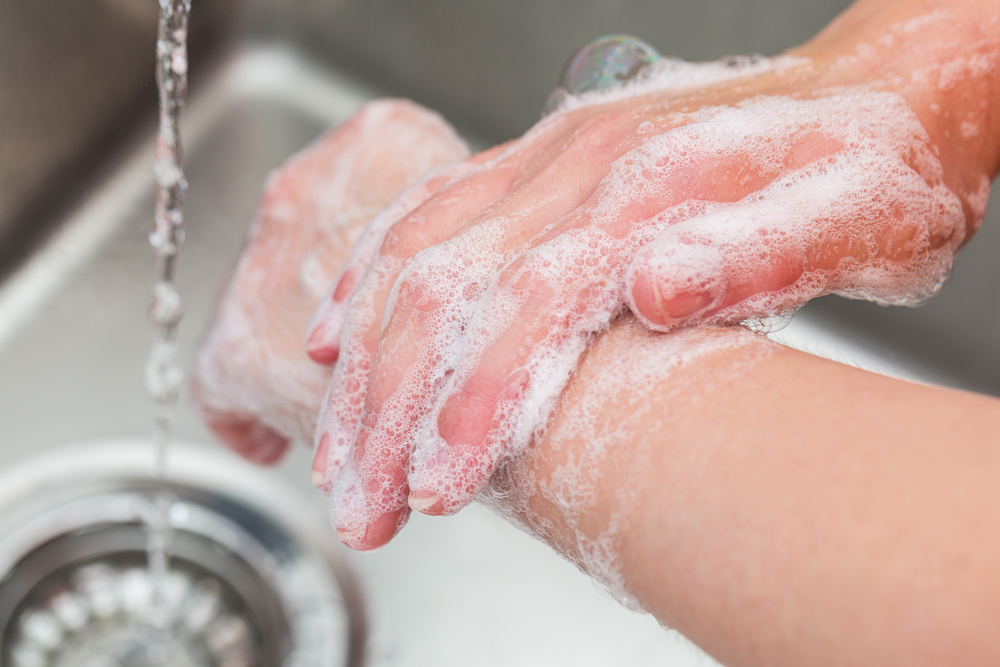Contents:
- Medical Video: 7 Swimming Rules That Will Save Your Life
- What makes children afraid to swim?
- Fear of water
- Afraid of his face getting wet
- Afraid of depth
- Fear of crowds and foreign places
- Helping children face fear of swimming
- 1. Start slowly
- 2. Talk about children's fears
- 3. Join swimming with children
- 4. Be positive
- 5. Get into the pool
- 6. Swim in a clock that is not too crowded
Medical Video: 7 Swimming Rules That Will Save Your Life
For children, swimming is a fun activity while nourishing the body. However, not all children enjoy this one water sport. Some children are afraid to swim. If your child is one who is afraid of swimming, you might have run out of ideas to persuade children to learn to swim. The reason is, if you are afraid the child will usually become stubborn and clever to reason. This is very unfortunate because swimming is one skill that should be mastered by everyone. In addition, the earlier your child learns to swim, the sooner the child will master the technique. So, don't despair first. You can help your child deal with his fear by first finding out what caused the fear to arise. After that, you and your child can try to defeat the fear with the following powerful tips.
What makes children afraid to swim?
Although it seems obvious that your child is afraid of swimming, you should pay close attention to what factors make him feel nervous when he wants to swim. There are many unexpected things that can actually make your baby afraid to swim. Consider some examples of fear that children often feel when swimming below.
Fear of water
Children who are afraid of water not only feel anxious while in the pool. Even when bathing or on the beach, your child will become fussy and irritable. This can be triggered by various things. For example, a bad experience about water such as falling slip or children often see parents or caregivers worried if they play water.
Afraid of his face getting wet
Most children are afraid to swim because they do not like when their faces or heads come into contact with water. Usually this happens because the child does not want his eyes, nose or ears to enter water. This will make them panic and lose control of their own body. If your child has experienced one of these before, he will be reluctant to enter the water again.
Afraid of depth
Many children are afraid of swimming pools even though previously there were no bad experiences about swimming or water. They just feel uncomfortable when they have to enter a pond deeper than their knees. This is usually influenced by imagination like there is something creepy in the water or fear of drowning.
Fear of crowds and foreign places
Maybe your child is not afraid of water, but he feels nervous if he has to learn to swim in a very crowded place. Children may feel uncomfortable with the smell of chemicals such as chlorine in the pool or if the swimming pool is crowded, your child is afraid that they will hit someone else. If your child is taking swimming lessons, maybe he feels embarrassed by his friends or swimming tutors.
Helping children face fear of swimming
If you have successfully detected what the child fears when swimming, it is time for you to help him deal with that fear. Look carefully at the following tips.
1. Start slowly
If your child is afraid of water, do not be forced or immediately taken to the deep pool so that he is brave. Children will only be more panicked. Instead, start slowly with patience. Invite children to wear swimsuits. Then, sit on the edge of a shallow pool and let the feet touch the water. If you are familiar with the water on your feet, invite to enter the pool through the stairs, one by one until the water reaches the stomach and neck. If the child refuses or cries, go up first from the pool until he is calm again. Continue to repeat the process until the child feels comfortable in the water.
2. Talk about children's fears
It is important for parents to listen and understand the fear of children. That way, the child will be more open to you and also want to listen to your guidance in the pool. However, do not exaggerate the fear, for example when you tell someone else. Instead of saying, "My child is very afraid to swim," better say, "My child is still hesitant when invited to swim, but soon it will be smooth swimming,".
You also should give understanding to children to straighten out the things they fear. For example, if your child is afraid of drowning, explain that in the swimming pool, the body will float by itself if your child stays relaxed and follows the movements you teach. If your baby is afraid of having water in his eyes, provide swimming goggles.
3. Join swimming with children
If your child is afraid to swim, you and your partner should also get into the water. This will increase self-confidence and security in the mind of the little one. Also invite your brother, sister or brother to swim together. That way, children will be compelled to face their fears so they can get involved in swimming with family. This tactic is also very useful for children who are afraid of strangers such as tutors or swimming tutors. If he has started to dare to swim alone, then you can register to take swimming lessons.
4. Be positive
While in the pool, maintain positive attitudes and words. Praise the child every time he dares to enter the water or dive. If the child is still afraid, use words that are confident and positive, such as, "You are great, dare to enter the water, surely you also dare to walk toward Mother. Come on, slowly take his hands off the edge of the pool, ". However, if the child sees a little you are impatient or upset, the child will be more afraid and remember when swimming as a negative experience.
5. Get into the pool
It's natural for a child to be afraid to swim if he really doesn't or rarely goes to the pool. Children will feel intimidated in a strange environment. So, try to make swimming a routine, for example once a week. Although children still refuse to swim, over time your baby will feel more familiar with the atmosphere and finally curious about the swimming pool. So that the routine is more fun, you can invite the child to do the things he likes after returning from the pool, for example eating ice cream.
6. Swim in a clock that is not too crowded
Children who are afraid of swimming generally feel uncomfortable if they have to be in the water with people who seem aggressive. For example, older children from him often jump into nearby ponds. Your child may also feel disturbed when exposed to splashes of water from other people. Therefore, try to swim in a fairly quiet hour so that the child is more free to practice and get used to it.
READ ALSO:
- The Importance of Teaching Children to Swim Early
- How to protect hair and skin if you swim frequently
- Safe Guide to Getting Babies to Swim












